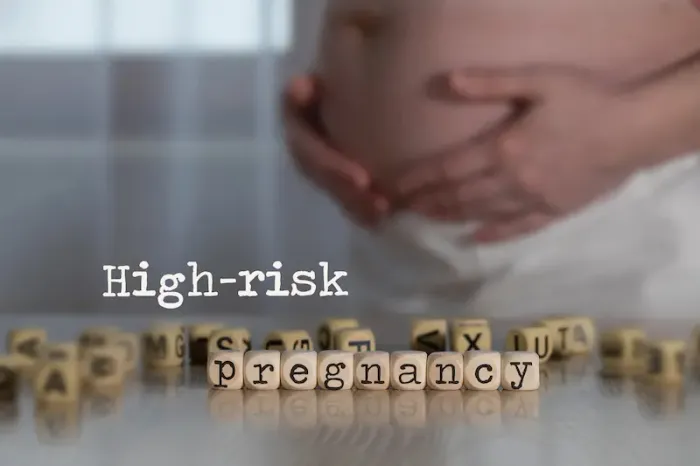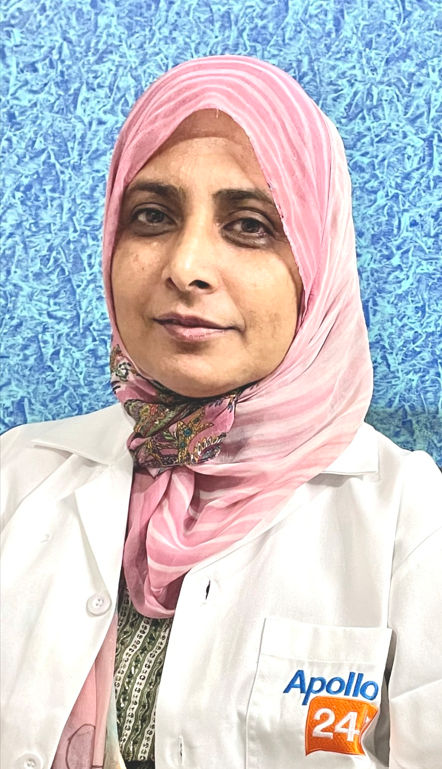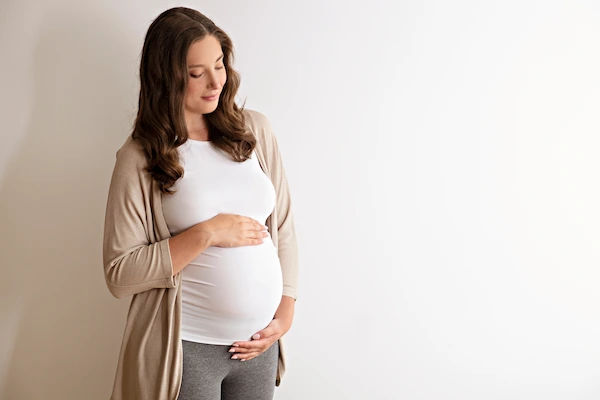Navigating a High-Risk Pregnancy: A Comprehensive Guide for Expectant Parents
Learn how to manage a high-risk pregnancy with expert guidance, monitoring tips, lifestyle adjustments, and emotional support to ensure the best outcomes for mother and baby.


Introduction: Understanding Your High-Risk Pregnancy Journey
Hearing the term "high-risk pregnancy" can understandably cause a wave of anxiety for any expectant parent. It’s important to remember that this label is not a diagnosis of a problem, but rather a proactive flag raised by your healthcare provider. It signifies that your pregnancy requires extra attention, monitoring, and specialised care to ensure the best possible outcome for both you and your baby. A high-risk pregnancy can result from a pre-existing health condition, an issue that develops during the 40 weeks, or factors like maternal age. This guide is designed to demystify what a high-risk pregnancy entails, from the initial diagnosis to delivery. We will explore the common causes, the advanced monitoring techniques you might experience, and the crucial steps you can take to manage your health. Our goal is to replace fear with knowledge and empowerment, helping you navigate this unique journey with confidence and the support of a dedicated medical team.
What Exactly is a High-Risk Pregnancy?
A high-risk pregnancy is one where there is a greater-than-average chance of complications for the mother, the baby, or both. These complications could arise before, during, or after delivery. It’s crucial to frame this correctly: being classified as high-risk does not mean something will go wrong. Instead, it means your healthcare team is taking extra precautions to prevent problems.
It's a Precaution, Not a Prediction
Think of it like driving in rainy conditions. The rain itself doesn't mean you'll have an accident, but it increases the risk. So, you naturally become more cautious—you turn on your headlights, slow down, and increase your following distance. A high-risk pregnancy is similar. The "risk" factor prompts your doctor to recommend more frequent "pit stops" (check-ups) and potentially use specialised "navigation tools" (tests) to ensure you and your baby reach your destination safely.
Common Causes and Risk Factors for a High-Risk Pregnancy
Understanding the causes of high-risk pregnancy is the first step towards effective management. These factors are generally grouped into three categories.
Pre-Existing Maternal Health Conditions
If you have certain chronic health conditions before becoming pregnant, you may be monitored more closely. These include:
• Diabetes: Poorly controlled blood sugar can lead to birth defects and other issues.
• High Blood Pressure: This can increase the risk of preeclampsia and placental problems.
• Autoimmune Diseases: Conditions like lupus can flare up during pregnancy.
• Thyroid Disease: Both overactive and underactive thyroid need careful management.
• HIV/AIDS: With proper care, the risk of transmission to the baby can be significantly reduced.Consult a Gynaecologist for the best advice
Conditions That Develop During Pregnancy
Sometimes, a pregnancy that started as low-risk becomes high-risk due to new developments:
• Preeclampsia: A serious condition characterised by high blood pressure and protein in the urine.
• Gestational Diabetes: Diabetes that develops during pregnancy.
• Placenta Previa: When the placenta covers the cervix.
• Preterm Labour: Going into labour before 37 weeks.
Age, Lifestyle, and Pregnancy-Related Factors
• Advanced Maternal Age: Pregnancy after age 35 carries increased risks for chromosomal conditions and pregnancy-related complications.
• Multiple Gestation: Carrying twins, triplets, or more.
• Lifestyle Factors: Smoking, alcohol use, and obesity can all contribute to a pregnancy being deemed high-risk.
How is a High-Risk Pregnancy Diagnosed and Monitored?
Diagnosis often begins at your first prenatal visit with a thorough medical history. If you are showing signs of a high-risk pregnancy based on your history or initial tests, your doctor will create a specialised monitoring plan.
The Initial Assessment and Ongoing Check-ups
Your doctor will review your personal and family medical history. Ongoing monitoring typically involves more frequent prenatal visits than a standard pregnancy. You might see your obstetrician every two weeks instead of four, or even weekly as your pregnancy progresses.
Specialised Tests You Might Encounter
Beyond standard ultrasounds, your managing high-risk pregnancy plan may include:
• Targeted Ultrasounds: Detailed scans to check the baby's anatomy.
• Biophysical Profile (BPP): A test that combines an ultrasound to check the baby's movements, tone, and amniotic fluid with a non-stress test.
• Non-Stress Test (NST): Measures the baby's heart rate in response to its movements.
• Blood and Urine Tests: More frequent testing to monitor for conditions like preeclampsia or gestational diabetes. For convenient monitoring, services like Apollo24|7 offer home collection for tests like HbA1c (for diabetes monitoring) and urine analysis.
Proactive Management: Your Guide to a Healthier Pregnancy
An effective high-risk pregnancy care plan is collaborative. It involves a partnership between you and your healthcare team.
Building Your Healthcare Dream Team
You may be referred to a maternal-fetal medicine (MFM) specialist, also known as a perinatologist. These are obstetricians with extra training in managing high-risk pregnancies. They work alongside your primary OB-GYN. Consulting a specialist online with Apollo24|7 can be a great first step to understand your risk profile and get a preliminary opinion from the comfort of your home.
Nutritional and Lifestyle Adjustments
A balanced diet, appropriate weight gain, and avoiding harmful substances are paramount. Your doctor may refer you to a nutritionist. Gentle exercise, like walking or prenatal yoga, is often encouraged unless you are on bed rest.
The Importance of Prenatal Vitamins and Medications
Do not skip your prenatal vitamins, especially folic acid. If you have a specific condition, you may need additional medications (like low-dose aspirin to prevent preeclampsia) and must take them exactly as prescribed.
Potential Complications: What to Be Aware Of
Awareness, not fear, is the goal. Potential pregnancy complications can include preterm birth, low birth weight, preeclampsia for the mother, or the need for a caesarean delivery (C-section). Your medical team is trained to identify and manage these risks early.
Emotional Well-being: Coping with the Stress and Anxiety
The emotional toll of a high-risk pregnancy is significant. It's normal to feel scared, isolated, or overwhelmed. Seek support from your partner, family, friends, or a therapist. Connecting with support groups for women going through similar experiences can be incredibly validating. Your mental health is a critical component of your overall well-being.
Planning for a Safe Delivery and Beyond
Your delivery plan will be carefully discussed. Depending on your specific situation, you might need to deliver at a hospital with an advanced Neonatal Intensive Care Unit (NICU). The question of whether you can have a normal delivery with a high-risk pregnancy is common, and the answer is: it depends. Many women with high-risk pregnancies have successful vaginal deliveries, while others require a planned C-section for safety. The goal is always the healthiest outcome for mother and baby.
Conclusion
A high-risk pregnancy journey is unique, requiring more vigilance and specialised care, but it is a path that thousands of families walk successfully every year. The key lies in partnering with a trusted medical team, adhering to your personalised care plan, and prioritising your physical and emotional health. Remember, the label "high-risk" is a tool for prevention and protection. By staying informed, proactive, and connected to your support system, you can navigate this journey with strength and confidence, focusing on the ultimate goal: welcoming a healthy new life into the world. If you have any concerns about your pregnancy risk factors, don't hesitate to book a physical visit to a doctor with Apollo24|7 for a comprehensive evaluation.Consult a Gynaecologist for the best advice
Consult a Gynaecologist for the best advice

Dr. Mona Yadav
Obstetrician and Gynaecologist
19 Years • MBBS, MD (Obstetrics & Gynaecology)
Dombivli
Nulife multispeciality, Dombivli

Dr. Korimilli Nisha
Obstetrician and Gynaecologist
10 Years • MBBS, MS (Obstetrics and Gynaecology)
Bansdroni
Siddhita Healthcare., Bansdroni

Dr. Somdutta Basu
Obstetrician and Gynaecologist
7 Years • MBBS, MS Obstetrics & Gynaecology
Bansdroni
Siddhita Healthcare., Bansdroni

Dr Homeira Nishat
Obstetrician and Gynaecologist
34 Years • MBBS, Diploma in Obstetrics & Gynaecology
Bengaluru
Cure Hospital and Clinic, Bengaluru

Dr. Sanjan Das
Obstetrician and Gynaecologist
15 Years • MBBS,MS
Bengaluru
Apollo Clinic, Sarjapur Road, Bengaluru
Consult a Gynaecologist for the best advice

Dr. Mona Yadav
Obstetrician and Gynaecologist
19 Years • MBBS, MD (Obstetrics & Gynaecology)
Dombivli
Nulife multispeciality, Dombivli

Dr. Korimilli Nisha
Obstetrician and Gynaecologist
10 Years • MBBS, MS (Obstetrics and Gynaecology)
Bansdroni
Siddhita Healthcare., Bansdroni

Dr. Somdutta Basu
Obstetrician and Gynaecologist
7 Years • MBBS, MS Obstetrics & Gynaecology
Bansdroni
Siddhita Healthcare., Bansdroni

Dr Homeira Nishat
Obstetrician and Gynaecologist
34 Years • MBBS, Diploma in Obstetrics & Gynaecology
Bengaluru
Cure Hospital and Clinic, Bengaluru

Dr. Sanjan Das
Obstetrician and Gynaecologist
15 Years • MBBS,MS
Bengaluru
Apollo Clinic, Sarjapur Road, Bengaluru
More articles from pregnancy
Frequently Asked Questions
1. What are the most common signs of a high-risk pregnancy?
While some high-risk pregnancies show no obvious signs, symptoms to report immediately include severe nausea/vomiting, vaginal bleeding or fluid leakage, severe headaches, decreased fetal movement, or persistent abdominal pain.
2. Can a high-risk pregnancy become low-risk later on?
In some cases, yes. For example, if a minor issue resolves itself or a condition like gestational diabetes is well-managed, the level of risk may be downgraded. However, this decision is always made by your healthcare provider.
3. Is bed rest always required for a high-risk pregnancy?
No, this is a common misconception. Bed rest is now prescribed less frequently and only for specific conditions like placenta previa or cervical insufficiency. Many women with high-risk pregnancies are encouraged to stay active within limits set by their doctor.
4. How can I reduce my risk of having a high-risk pregnancy?
While not all factors are controllable, you can lower your risk by achieving a healthy weight before pregnancy, managing chronic conditions, taking prenatal vitamins, and avoiding smoking, alcohol, and illicit drugs.
5. Will I definitely need a C-section if my pregnancy is high-risk?
Not necessarily. Many high-risk pregnancies can result in a vaginal delivery. The mode of delivery depends on the specific complication. For instance, women with well-controlled gestational diabetes often have vaginal births, while those with placenta previa will require a C-section.




